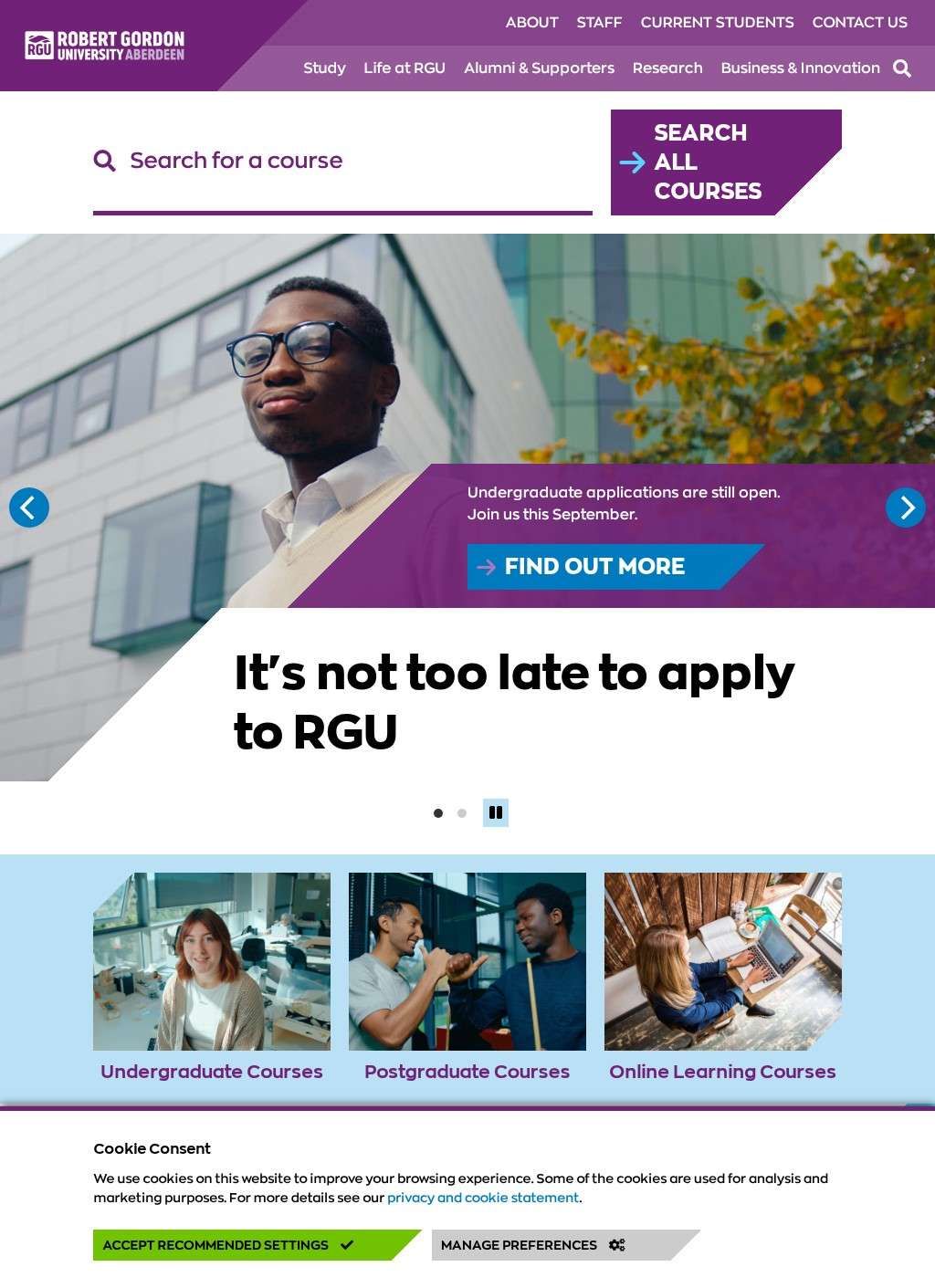Robert Gordon University represents a distinctive approach to higher education, combining professional focus with academic excellence since achieving university status in 1992. Named after the 18th-century Aberdeen merchant who established the original educational foundation, RGU has evolved into a modern institution serving over 15,000 students from 120 countries. The university's philosophy centers on career-ready education, maintaining close industry partnerships that ensure graduates possess skills directly applicable to contemporary workplace demands.
The institution operates from a purpose-built campus at Garthdee, situated on the banks of the River Dee in Aberdeen's southwest. This £120 million facility, completed in 2013, provides state-of-the-art teaching environments designed specifically for professional education. The campus architecture emphasizes functionality and collaboration, featuring specialized laboratories, simulation centers, and industry-standard equipment that mirrors real workplace conditions across multiple disciplines.
Academic programs span eleven schools, delivering over 300 courses from undergraduate through doctoral levels. The curriculum design prioritizes practical application, with many programs including mandatory work placements, industry projects, and professional accreditation pathways. Business programs, health sciences, engineering, and creative arts represent core strength areas, each developed in consultation with relevant professional bodies and industry partners.
Graduate employability statistics consistently rank among the UK's highest, with RGU frequently achieving top positions for career outcomes. This success stems from the university's integrated approach to professional development, including the RGUplus employability scheme that enhances student skills beyond academic requirements. Industry partnerships provide direct recruitment pathways, with many graduates securing positions with placement employers or through established recruitment networks.
Research activities focus on applied solutions addressing real-world challenges, particularly in energy, health, technology, and business innovation. The university's research centers collaborate directly with industry partners, ensuring research outcomes translate into practical applications. Aberdeen's position as Europe's energy capital provides unique opportunities for energy-related research, with the university hosting specialized facilities for offshore engineering, renewable energy systems, and petroleum engineering studies.
International recognition includes rankings as Scottish University of the Year 2021 and consistent high performance in student satisfaction surveys. The university's reputation extends globally through partnerships with institutions across multiple continents and specialized programs designed for international markets. Distance learning options enable global participation in selected programs, expanding access beyond traditional campus-based study.
Student support services encompass academic tutoring, career guidance, mental health support, and international student assistance. The university's compact campus facilitates close student-faculty relationships, enabling personalized attention and responsive support services. Student societies and sports clubs provide diverse extracurricular opportunities, fostering community engagement and leadership development.
Aberdeen's location provides additional advantages for RGU students, with the city consistently rated among the UK's most affordable student destinations. The urban environment offers cultural activities, outdoor recreation opportunities, and internship possibilities while maintaining reasonable living costs. The city's energy industry presence creates abundant placement and graduate employment opportunities, particularly for engineering, business, and technology students.
Campus facilities include the RGU SPORT complex featuring swimming pools, climbing walls, multiple gymnasiums, and extensive sports fields. The library provides 24-hour access during term periods, offering collaborative study spaces, individual work areas, and comprehensive digital resources. Specialized facilities support each academic school, including health simulation labs, engineering workshops, art studios, and business incubation spaces.
Professional accreditation partnerships ensure programs meet industry standards and provide graduates with recognized qualifications. Engineering programs hold accreditation from relevant professional bodies, health programs align with NHS requirements, and business schools maintain international accreditation standards. These partnerships facilitate graduate registration with professional bodies and ensure curriculum relevance to evolving industry needs.
Admission requirements vary by program but generally emphasize potential for professional success alongside academic achievement. The university welcomes applications from diverse educational backgrounds, offering foundation programs and bridging courses where appropriate. International students receive dedicated support throughout the application process, including guidance on visa requirements, English language proficiency, and academic preparation.
Contact information includes dedicated admissions advisors, international student support teams, and program-specific inquiry points. Campus tours operate regularly throughout the year, with virtual alternatives available for international prospects. The university maintains active social media presence and comprehensive online resources supporting prospective student decision-making processes.
